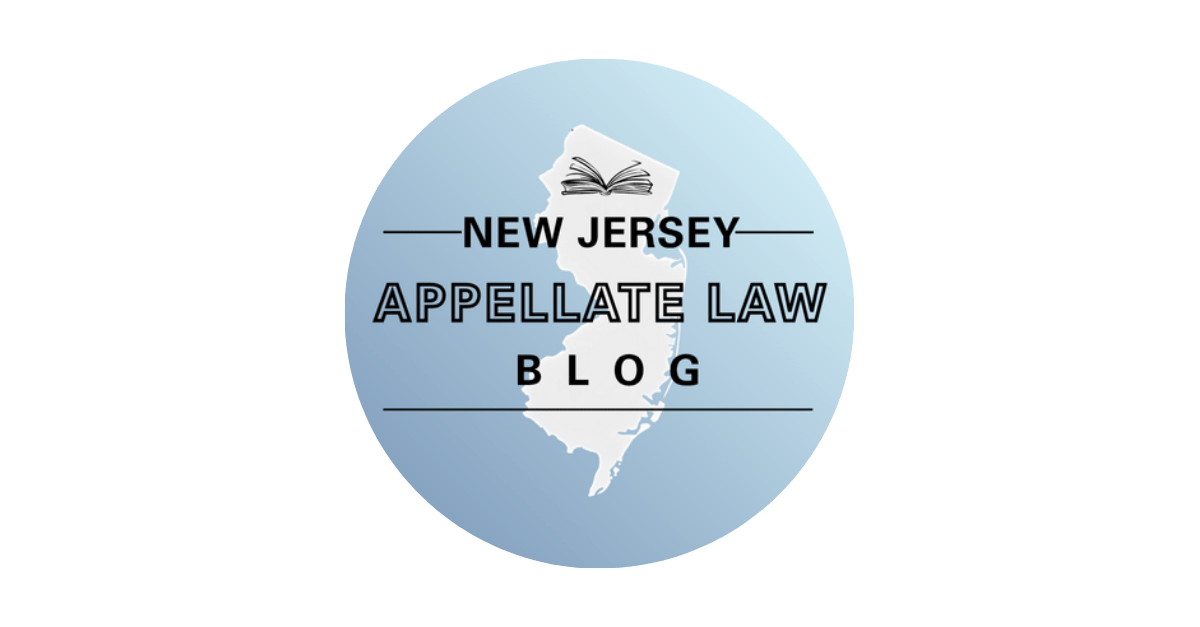While this blog was on hiatus for much of January, the Appellate Division was in high gear, issuing thirteen published opinions. Here are summaries of some of those opinions:...
Due to a confluence of factors, the most recent post on this blog was in the first week of January. This post, and others to follow, will catch up with the activities of our appellate courts for the rest of January....
The last two weeks have seen no Supreme Court opinions. But the Appellate Division published three opinions, two of them in the criminal realm and one civil appeal. Here are summaries, to close out 2025:...
The end of last week saw the issuance of one Supreme Court ruling and two published Appellate Division decisions. Two of those were in criminal appeals. The third involved the exclusion of an expert witness in a medical malpractice case....
The Supreme Court announced that it has granted review in three new matters. Two of them involve questions certified to the Court by the Third Circuit Court of Appeals, under Rule 2:12A. It is relatively rare for the Court to receive, and rarer for it to grant, petitions to decide certified questions, and it appears unprecedented for the Court to have granted review in two such cases at the same time. The other new case is a grant of leave to appeal to address one of the same issues presented in one of the certified question matters....
On Tuesday, September 30, judges on Part G of the Appellate Division will hear oral argument in Esposito v. Cellco Partnership d/b/a Verizon Wireless. The case follows from a $100 million nationwide class action settlement that had required class members who decided to exclude themselves from the settlement and potentially pursue their own litigation against Verizon to opt out individually, and barred mass opt-outs. However, Murphy Advocates, LLC, a Colorado law firm conducted a marketing campaign to create a mass opt-out that attracted about 11,000 class members who responded to Murphy that they wished to opt out....
The Supreme Court announced that it has granted certification in two new cases. Both are criminal appeals. One is from a published opinion of the Appellate Division, while the other is from an unpublished per curiam decision by a three-judge panel....
The Supreme Court announced that it has granted review in four new cases. Two of them are criminal matters. The other two involve eminent domain issues. One of the criminal appeals is before the Court on leave to appeal, the second grant of leave to appeal in the current Term. The Court granted certification in the other three matters....
Alcantara v. Moro, ___ N.J. Super. ___ (App. Div. 2025). Judge Smith authored this opinion for the Appellate Division, that court's first published opinion of the new Term. The appeal was from a final decision of the Commissioner of the New Jersey Department of Education that the School Funding Reform Act, N.J.S.A. 8A:7F-43 et seq. ("SFRA"), was constitutional as applied to the Township of Lakewood....
The Supreme Court announced that it has granted leave to appeal in State v. Caneiro, a quadruple homicide case. The question presented, as phrased by the Supreme Court Clerk's office, is "Under the circumstances presented, where defendant's house was on fire, was the warrantless seizure of evidence from the garage justified under the exigent circumstances exception to the warrant requirement?"...

